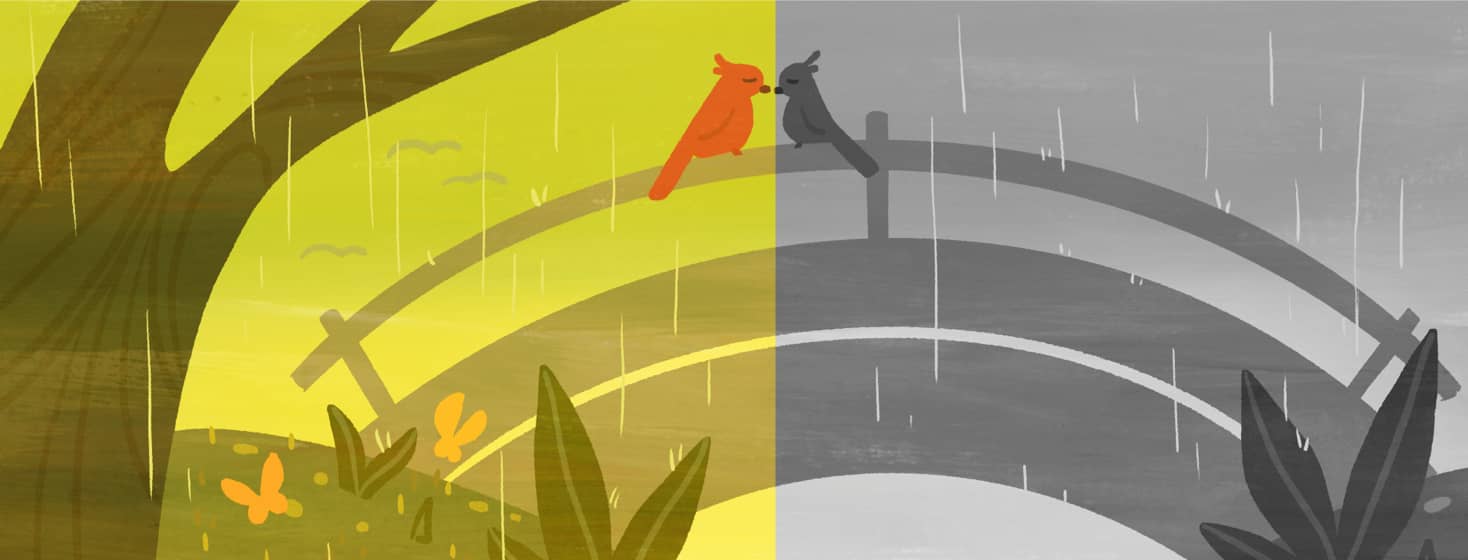Your Grief Does Not Mean You're Not Grateful
Have you ever felt sad about what you have lost to Alzheimer's and then immediately felt guilty for not being grateful for what you still have?
When my mom was living with Alzheimer's, I often felt that way. I was so sad about how much of her I had already lost and would continue to lose as the disease progressed, but then I immediately felt guilty for being so sad when my mom was still alive.
My experience with guilt and Alzheimer's
I felt guilty for not being more grateful for all the things I still had left with my mom. I felt guilty for not appreciating it — for not appreciating her.
I knew other people who had lost their mom or dad completely. They were no longer living and not a part of their life in any capacity.
Shouldn't I have just been grateful that my mom was still alive? Shouldn't I have just appreciated the fact that I could still spend the day with my mom and hear the sound of her voice?
Maybe, but here are two things I learned over the ten years my mom suffered from Alzheimer's:
- Just because someone else has it worse than you doesn't mean that you don't have it pretty bad.
- You can be both grieving and grateful at the same time.
Comparing ourselves to others
Sometimes, we compare ourselves to others who have it worse as a way of making ourselves feel better about our own struggles. It can be helpful to remind us to be grateful for all that we have. But just because someone else is worse off or in a more difficult situation than you doesn't mean that you aren't still struggling or going through something hard.
It's okay for you to feel sad, angry, bitter, or whatever you're feeling even though there are other people going through even more challenging times. Feeling grief for what you've lost is normal and it doesn't negate the fact that you're grateful for what you still have.
You can feel two conflicting emotions at the exact same time.
Grieving loss and gaining gratitude
You can grieve for what you have lost and be grateful for what you still have at the exact same time. One does not take away the other. If anything, feeling grief at your situation makes you even more grateful for what you have.
It makes you realize how fleeting life is and how it can change in an instant. It makes you realize that nothing is guaranteed or promised to us.
Personally, I think this journey teaches you to have more gratitude for everyone and everything in your life because you know that it can all be taken away from you. You have more gratitude because of your grief — not in spite of it.
You're allowed to be both
So, the next time you feel sad about all that you have lost, just allow yourself to be sad. Don't beat yourself up for not being more grateful. And don't compare yourself to others who have it worse unless that makes you feel better.
Remember, your grief does not mean you're not grateful. You can be both at the exact same time.

Join the conversation